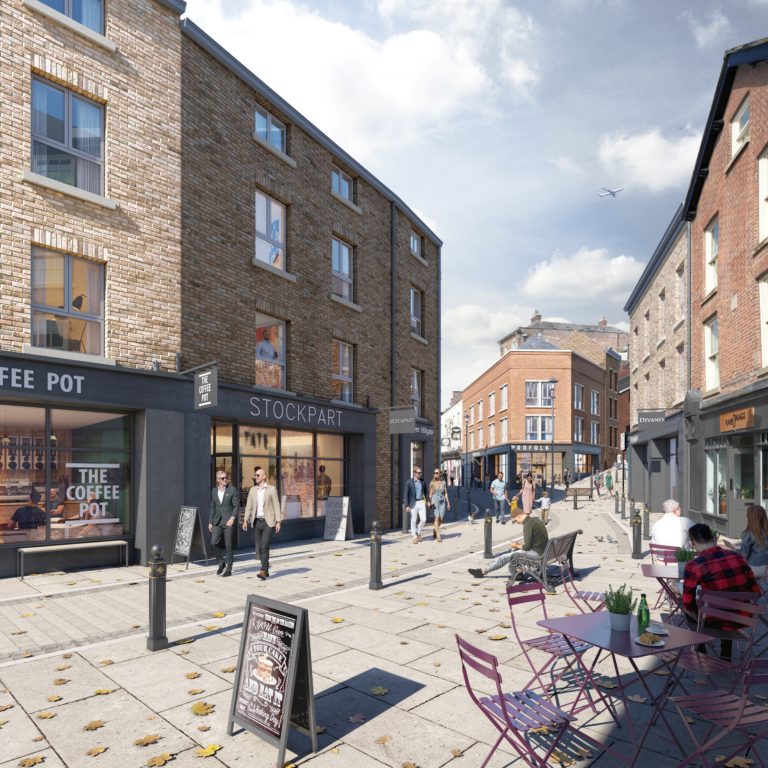Property investment comes in many forms, and while renting to long-term tenants might be the obvious route, there’s another option many investors are turning to.
Investing in property in the UK has proven a sound strategy for scores of investors and homeowners over the years, who have seen the value of their bricks and mortar rise exponentially.
The most popular investment methods tend to be buying a traditional buy-to-let where you reap returns through rental yields over time as well as capital appreciation; and “flipping” property where you buy at a low price and sell on a short time later for a profit.
However, recent legislative and tax changes to the buy-to-let market in the UK have seen some investors seek alternative ways to invest their money and diversify their portfolios. Now, more investors are seeing the benefits of furnished holiday lets and the short-term lettings industry. Below, we outline the various pros and cons of each property investment type.
Traditional buy-to-let: a safe bet if you invest wisely
There are approximately 8.5 million private tenants in the UK, while the proportion of renters to homeowners has doubled over the past 20 years. The expectation is that this figure will grow even more over the coming years as people continue to get onto the housing ladder even later in life – or not at all. While some of this is down to rising house prices compared to wages, the quality of life within the private rented sector has also seen vast improvements, and it is increasingly seen as a desirable lifestyle choice with more flexibility than owning a home, as well as less responsibility.
The high demand in the private rented sector means that if you invest in the right property in a good location where tenants are likely to want to live, buy-to-let investors are still seeing huge success. Rental yields are particularly strong in places like Liverpool, Manchester, Birmingham and Leeds, as well as more peripheral, up-and-coming areas such as Preston, Bolton and Reading. Compared to the capital, many of these areas will also see the biggest house price rises over the coming years.
There are downsides to this form of investment, such as the tax implications (changes to mortgage interest relief and capital gains tax being the most prominent). It is important to be aware of all the costs and obligations involved with being a landlord, but if you choose a good property investment, you will still reap rewards.
Flipping property: it’s risky business
One method of property investment that was particularly popular during the 1990s and 2000s – when house prices were on a steep upwards climb – was flipping property. This involved buying, potentially renovating to add value, and selling a short time later for a profit, benefiting from any short-term house price inflation. If you bought in the right place, at the right time, and sold well, this could have been a very profitable endeavour.
However, this method can also very easily fall flat, particularly in today’s market with the added stamp duty expense to factor in. Issues occur if you pay too much initially, underestimate any renovation costs involved, or if the market changes and you can’t recoup your money on sale. It is therefore considered a high risk strategy.
Flipping an off-plan property is slightly different. When buying off-plan, an investor could sell the property off to another investor before the project is completed. Because stamp duty isn’t paid until completion, the original buyer avoids paying this tax, so any increase in the value of the property is pocketed by them. But the method still relies on finding a buyer, who is willing to pay the price you are asking.
Furnished holiday lets: top yields and tax relief
Short-term and furnished holiday lets offer a third option for property investors, and the figures show more landlords than ever are making the switch. According to new findings from ARLA Propertymark, 2.7% of all landlords have moved from long-term tenants to short-term lets, which equates to around 46,000 properties.
In total, 16% of landlords in the UK currently offer only short-term lets, while, 7% offer a combination of short- and long-term. This increase, according to the survey is down to a combination of factors including the increased flexibility of the property use, increasing regulations in the private rented sector, and the potential for higher rents.
From a tax point of view, a furnished holiday let is treated quite differently to a buy-to-let property. For pension purposes, profits count as “earnings”, and you can also offset your mortgage costs against your taxable gains – unlike with buy-to-lets (see this article on Section 24). Capital gains tax, which is 28% for property assets, is also treated differently when you sell as you are likely to qualify for entrepreneurs’ relief, rollover relief and holdover relief.
Yields have the potential to be higher, too. Liverpool was last year named the highest yielding place for short-term lets, with yields reaching 27.2% based on an occupancy rate of 50% of the year, while London, Edinburgh, Manchester and Birmingham are also hotspots.
One of the downsides to this type of letting is that it can require more work as a “hands-on” investment, due to the high turnover of guests. There are also rules and restrictions, some of which only apply to certain areas, such as the London 90-day rule, while nationally properties must be available to let for at least 210 days of the year to qualify for tax purposes. The industry is also very review-based, so your success will be enhanced with each positive review, whereas poor reviews can be hugely detrimental.
To conclude, while furnished holiday lets and short-term lets may not be the answer for every investor, they come with some major benefits that might help some landlords navigate the changing industry.
At BuyAssociation, alongside our traditional buy-to-let and build-to-rent investment opportunities, we offer a number of options that are available on a short-term let basis. Take a look at our investments page and sign up for free for more information.











